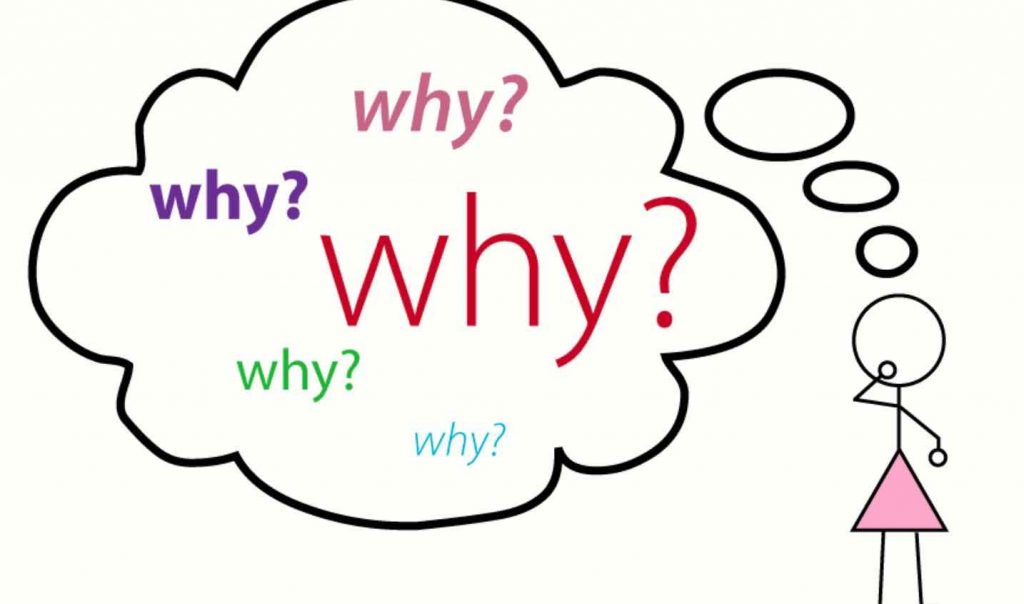
Have you ever wondered if your work has a higher purpose? That thing that makes you go to work in the mornings with a smile on your face because you know that you and the company you work for are contributing something special to the world…
This is the third article in our series of articles on Leaders in the future. You can read the first two here:
Leaders in the future #1: This is what awaits you
Leaders in the future #2: The leadership skill that will be the key to success
We all want to believe that there is meaning and purpose in what we do every day, that our work means something to others, that it makes a difference and that it is appreciated. And that what we do does not just mean money in the bank every month, but also brings joy and satisfaction to anyone paying for our goods and services.
Just over ten years ago, Simon Sinek published his book Start With Why, which soon became a “bible” for everyone in marketing and which has also influenced many people in their leadership. Very briefly, here is Sinek’s keys to how to build a successful business:
• Just about every CEO, manager and employee in the company know the goods and services they are offering very well – they know their “what”. They know how the products or services work and can explain this to their presumptive clients.
• Most of them also have a decent knowledge of how the goods or services are produced. This includes practical things like what methods and processes are used, as well as the softer aspects, for example what values are important in the company and how these are shown in the relationship between managers, employees, clients and the general public.
• However, according to Sinek there are few companies (or rather their leaders) who have really considered why they actually exist, why they create their products or services and why anyone should by them. It is this why which is the key to success, according to Sinek. Successful businesses are completely aware of why they exist, they live up to their why every day and are very good at communicating their why to their clients and to the general public. This way they attract loyal clients who return for repeat business again and again.
Simon Sinek’s conclusion to anyone looking for success is therefore: find your why (as in the book title, “Start With Why”), then think about what you are going to do and how. “People don’t buy what you do, they buy why you do it”, is one of Sinek’s mantras which he keeps coming back to and adds that we most often make our buying decisions based on our emotions, not just our common sense.
Even if Simon Sinek today is considered a guru among sales and marketing people, his theses have also been criticised. One criticism is that it is not as simple as Sinek makes it out to be, that many companies have spent a lot of time and money on finding their why, only to discover that nothing changed. And even if a company thinks it has found this magical why, it is difficult, or near impossible, to effectively communicate it to the world. Clients seems to still just care about the usability, the quality and the price of the product…
However, Sinek’s ideas are worth contemplating, at least from a leadership perspective with a view to the future. We have reason to believe that new generations think in a slightly different way to those of us of a more mature age, both when it comes to how they view their future jobs and as consumers.
Several studies have shown that today’s young people, those born from the mid-nineties to the mid-noughties and who will therefore soon become a large and important part of the workforce, have other demands and values than previous generations. One example is a survey from last year, conducted by Swedish local authorities and county councils, which shows what distinguishes today’s Swedish 15-24-year-olds. (Even though these results only reflect the younger Swedish population’s views, similar surveys in other parts of the world are likely to reveal similar tendencies as a sign of the times. What do you think the results would be in your culture?)
• 15-24-year-olds expect to be validated, seen and appreciated when they are in employment.
• They value a flexible job where they can have a say in their working hours and also have a good balance between work and free time.
• They think that nice colleagues, interesting work tasks and good and dedicated managers are more important aspects than a high salary.
• They want to help others through their work and want their employers to contribute to doing good for society at large.
• They are more interested in issues concerning the world around them than previous generations, but more in the sense of getting involved in important issues rather than political parties.
• They think that climate and environmental issues are very important and therefore want to change people’s habits towards eating more vegetarian food, shop more second hand and buy more organic products, among other things.
• The awareness and the interest in the world around them are important driving forces when these young people choose their higher education, careers and future employers.
• We ought to add that there are more and more people from the older generations who are also focused on sustainability and who see environmental issues are very important and this group is constantly growing.
Tomorrow’s companies and leaders therefore need to be able to deal with the changes above, and the most interesting thing is perhaps that these young people will not only become employees, they will also be consumers. And because of their awareness and interest in social and environmental issues, they are very likely going to ask, “Why should I work for this particular company? Why should I buy this particular product?”
Perhaps Simon Sinek’s praised and criticised model about finding your why in the end boils down to two things all leaders should recognise: passion and vision!
Passion is your first why. It is your drive, your fire. It is contagious to those around you and makes them grow, take more responsibility, feel better. Passion challenges, changes and wants to make things happen. It is your best friend and your guiding star. It never gives up.
Vision is your other why. It directs you and leads the way. Your vision inspires, motivates, clarifies everything – this is where we are heading. It ignites your imagination and it finds new goals. It says, ”longer, better, forward”. Your vision is unattainable, but only just.
If you combine passion with vision, you will most likely get as near to your why as you can possibly get. And if the passion and vision are embraced by everyone in the company and also liked by the customers, and preferably also be a majority of the public, you ought to at least have found a solid foundation for success.
(The products you sell will of course also need to be something that people actually want and are prepared to pay for, are of good quality and produced in an environmentally friendly, sustainable and ethical manner.)
In brief, we think that tomorrow’s leaders will need a large dose of passion and need to think outside of the box and dare find new solutions (i e be visionaries) in order to succeed. There are indeed a few problems to deal with in today’s world.
Although, why wait until tomorrow…?
• The New Leadership have a wide range of leadership training programmes. You can choose between individual programmes, group training, or programmes involving the whole organisation. If you are interested in finding out more about how your company can improve your work on vision, click here.



